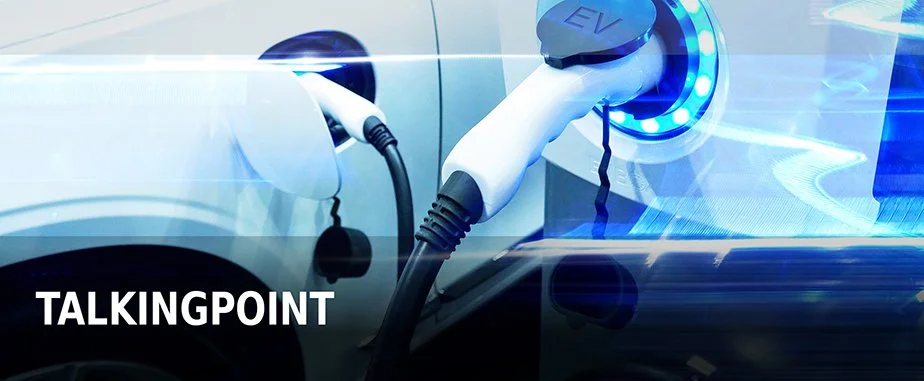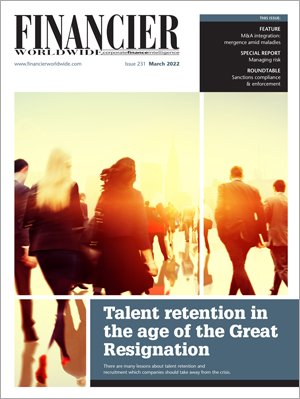Evolution of the automotive sector – disruption
March 2022 | TALKINGPOINT | SECTOR ANALYSIS
Financier Worldwide Magazine
FW discusses the disruption and evolution of the automotive sector with Julian Dirksen, Eric Wallenbrock and Miriam Ballhausen at Bird & Bird.
FW: Could you provide an overview of the trends and developments shaping the automotive sector in recent years? What have been the key sources of change and disruption?
Wallenbrock: Original equipment manufacturers (OEMs) in Europe are under pressure to change their supply chain models in light of three forces: electronic vehicles, the global semiconductor shortage and autonomous driving. The drive for electric vehicles requires a stable supply of high-power batteries and substantial new investment in Europe to avoid permanent dependency on China. The semiconductor shortage has been testing the limits of the supply chain both practically and in contractual terms. Suppliers of OEMs are refusing to bear the costs of production delays and lost sales due to the absence of microchips. Lastly, autonomous driving technology is requiring manufacturers to partner closer with software makers and insurance providers to pioneer new products in transparent collaboration with national regulators.
Dirksen: Suppliers in the automotive sector are struggling with disruptions in the supply chain and a need for price adjustment. One driver for disruptions, especially in 2021, was force majeure events, especially the impact of the semiconductor shortage. Other major issues for automotive sector suppliers were increasing purchasing costs for raw materials and product components, as well as increasing logistic costs and a drop in production, especially of less expensive car models.
“Supply and pricing agreements must reflect today’s realities, namely that not everything is available cheaply and in stock all the time.”
FW: In your experience, are automotive manufacturers actively reviewing their business models and structures? Are some choosing to fine-tune core activities while others seek to expand into new opportunities?
Wallenbrock: Business models are undergoing change, notably in light of consumer trends and supply chain pressures. Two key trends are the rapid expansion of online transactions for sales and rentals, and the exploding growth of the auto leasing market in France and throughout Europe. Consumers are comparing and customising auto sale and rental packages.
Dirksen: In the long term, with the increasing digitalisation of vehicles, all OEMs will move toward software development. Software will no longer be a ‘supporting component’ for hardware products in cars. Software will be independently implemented in vehicles on centralised and standardised electrical/electronic architecture and platforms. In cars with autonomous driving technology, software features for safety, but also for work, entertainment and comfort, will become significantly more relevant. OEMs wants to make money with these software applications.
FW: How would you characterise the level of investment into new technologies made by automotive manufacturers? What impact is quantum computing, for example, likely to have in the long term?
Dirksen: Volkswagen announced a €75bn investment in e-mobility, software-based vehicle operating systems and self-driving technologies over the next few years. Additionally, Daimler announced a €60bn investment, while BMW announced its intention to invest €50bn in new technologies. An example of new technologies is quantum computing. In the long term – from the middle of this decade onwards – it is estimated that the entire automotive industry will greatly benefit from quantum computing, especially for optimisation processes in research and development, production and information.
FW: Could you outline the data privacy issues that automotive companies need to address, particularly in connection with new technology?
Ballhausen: Automotive companies will need to address both data and data privacy-related topics. The former essentially refers to the use of data to make cars ‘smart’. The data used to achieve this will typically be personal, tied to an individual, because the information will usually be connected to a driver or passengers. If it is personal, data privacy rules need to be observed. However, the information does not necessarily need to be personal. For example, data used to provide predictive maintenance functionality does not necessarily have to be tied to a driver or passengers, as long as the make and model of the car are identified. Even the use of this data should be carefully considered, as it could be subject to third-party rights. Additionally, automotive companies will need to consider data privacy laws for all personal data that they collect and process. They will need to answer a number of basic questions, such as: What data are we processing? What basis can we rely on? Which third parties do we involve in this processing? Will data be transferred to third countries?
“Price adjustments are often quite difficult to achieve, but persistence and a strong product can produce results.”
FW: How should suppliers deal with current higher raw material and logistic costs, and the drop in production? Are there any short- and long-term solutions?
Dirksen: Probably the only existing short-term solution is to start negotiations with OEMs over price adjustments. But such price negotiations are not easy, especially against a backdrop that, according to nomination letters or long-term supply agreements with OEMs, product prices are agreed, fixed and final. Under German law, the supplier generally bears the risk of rising costs for components, raw materials or logistics. Thus, there is usually no claim basis under German statutory law by which a supplier could be entitled to demand price adjustments. In this instance, we would recommend that the supplier adopts a customised strategy based on the individual economic and legal situation at hand. But often, terminating a contract is the only solution.
Wallenbrock: Price adjustments are often quite difficult to achieve, but persistence and a strong product can produce results. Unilateral price increases under contracts are not usually possible, but termination is sometimes possible, which can compel a buyer that lacks a readily available alternative to renegotiate prices.
Dirksen: A long-term solution could be to insert more comprehensive price clauses for raw materials and logistic costs into pricing agreements along the supply chain. Agreements should distribute costs such as air freight costs if a ship is delayed en route and products have to be transported quickly to avoid halting production. In short, supply and pricing agreements must reflect today’s realities, namely that not everything is available cheaply and in stock all the time, but that delivery bottlenecks and delays, as well as considerable price fluctuations, can occur.
FW: Is force majeure likely to remain a source of supply chain disruption through 2022? How can suppliers overcome related problems?
Dirksen: Force majeure will play a more important role in the future. The backlog in container ship traffic is still enormous and may even increase due to new shutdowns or staff absences, many of which result from coronavirus (COVID-19) variants. Furthermore, climate change will increase the amount of weather catastrophes, especially floods. Thus, unfortunately, an increased number of force majeure events impacting the automotive sector and its supply chain must be expected. From a legal point of view, it is important that force majeure clauses with OEMs and along the whole supply chain reflect all potential scenarios, particularly those experienced during the last two years.
“One driver for disruptions, especially in 2021, was force majeure events, especially the impact of the semiconductor shortage.”
FW: How long do you expect the semiconductor shortage in the automotive industry will last? What steps can the automotive industry take to deal with this issue?
Dirksen: According to forecasts, the semiconductor crisis will continue in 2022 and probably end in the first or second quarter of 2023. However, the automotive industry has learned important legal lessons and dealt with the direct consequences of the semiconductor crisis, especially the question of fair and correct allocation and thereby the avoidance of liability. But the indirect consequences of the semiconductor crisis remain problematic and already require a great deal of legal advice.
FW: How do you expect the automotive sector to evolve in the years ahead? What challenges and disruptive factors are likely to dominate this industry?
Dirksen: In the future, mobility will be electric or comprise other ‘green’ engine types as alternatives to the combustion engine. There will be more mobility on demand and, thus, more car and ridesharing. Cars will be produced in smart, optimised automated factories. Moreover, the car sale process will move away from local dealers to online platforms, and cars will be driven by autonomous systems more frequently. The biggest disruptive technology for me is the implementation of level 5 autonomous driving – whenever that ultimately arrives.
Julian Dirksen is counsel and a member of Bird & Bird’s automotive team, based in Frankfurt, Germany. He advises international and German automotive suppliers on all commercial and litigation issues. He specialises in disruptions in the supply chain and liability cases for tier 1 and tier 2 suppliers, especially recalls and serial damages, as well as complex commercial contracts and standard agreements. He can be contacted on +49 (0)69 74222 6000 or by email: julian.dirksen@twobirds.com.
Eric Wallenbrock is counsel and a member of Bird & Bird’s automotive team, based in Lyon, France. He advises international and French companies on commercial and industrial cooperation agreements, particularly in the context of automotive and aerospace supply chains. He acts as counsel to equipment manufacturers on technology licence and transfer agreements. He also regularly represents automotive suppliers in complex commercial contract disputes. He can be contacted on +33 (0)4 78 65 6000 or by email: eric.wallenbrock@twobirds.com.
Miriam Ballhausen is a partner and a member of both Bird & Bird’s technology and communications as well as automotive groups. She is based in Hamburg and advises clients on all matters involving technology, software, digital media, copyright, data and data protection law, with a particular focus on the collaborative development of open-source software, open data and open hardware. She can be contacted on +49 (0)40 46063 6000 or by email: miriam.ballhausen@twobirds.com.
© Financier Worldwide





